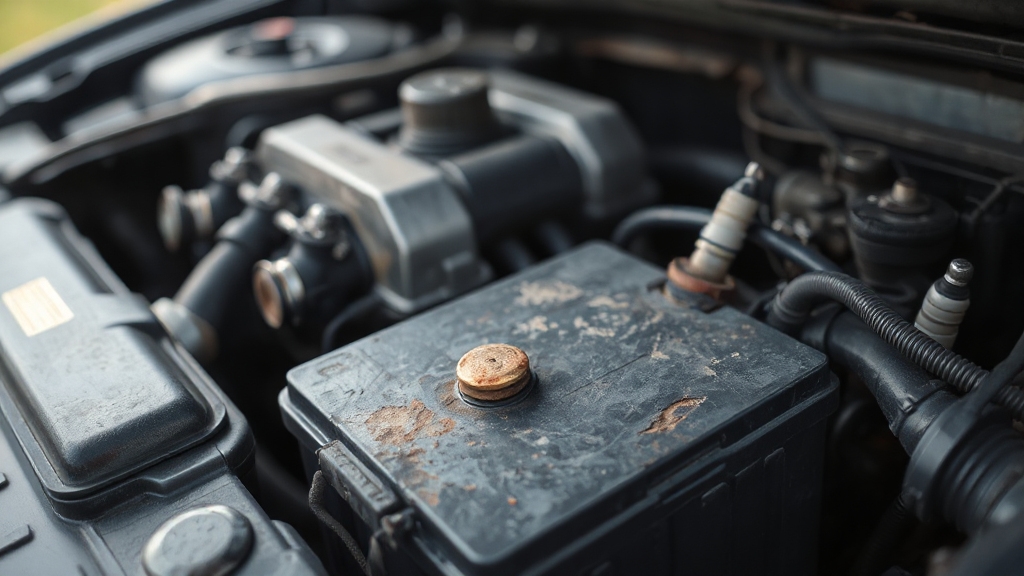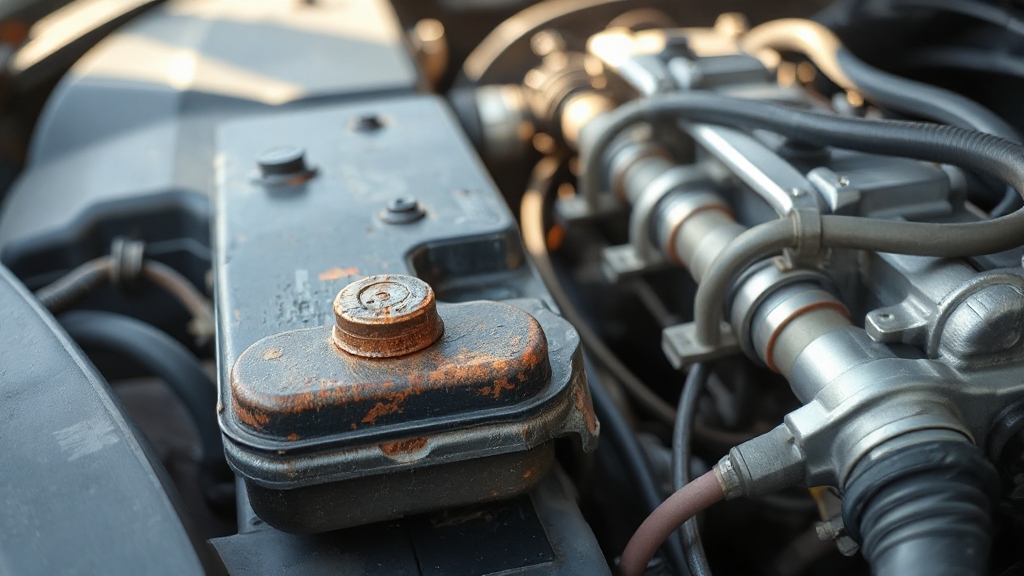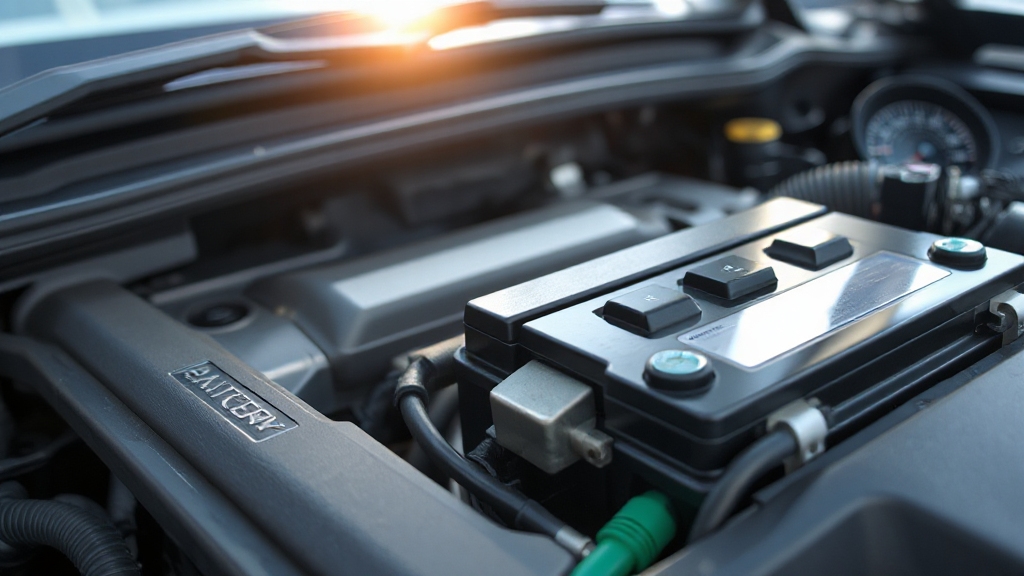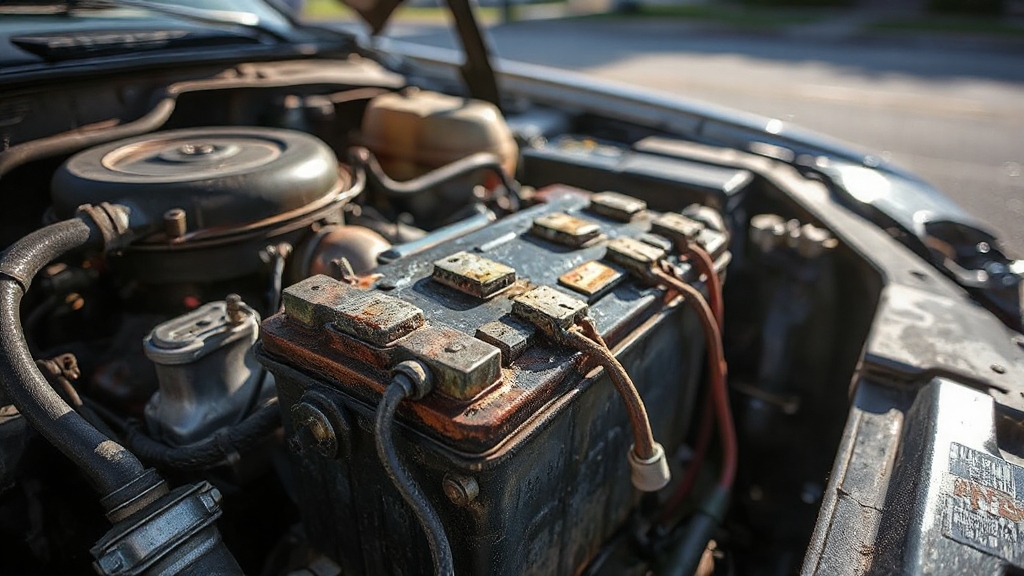Yes, a bad battery can affect your gas mileage because it forces the alternator to work harder, increasing engine load and fuel consumption. Low battery voltage reduces fuel injector precision and disrupts engine computer functions, leading to inefficient fuel delivery. This causes your engine to burn more fuel than necessary. Environmental conditions also impact battery performance, further influencing efficiency. Understanding these factors helps optimize your vehicle’s fuel economy and performance.
Key Takeaways
- A weak battery increases alternator workload, causing higher engine load and reduced fuel efficiency.
- Low battery voltage impairs fuel injector precision, leading to inefficient fuel combustion and increased gas consumption.
- Battery-related voltage fluctuations disrupt engine sensors, causing poor fuel mixture adjustments and lower mileage.
- Cold weather reduces battery output, forcing the engine to work harder and burn more fuel.
- Replacing a battery can reset engine computer settings, temporarily affecting fuel economy until recalibrated.
How a Weak Battery Influences Fuel Efficiency?

When your vehicle’s battery weakens, the alternator has to work overtime to keep it charged, which substantially increases the engine’s load and fuel consumption. You’ll notice the alternator draws more mechanical power, forcing the engine to burn extra fuel to generate the necessary electricity. This added load directly reduces fuel efficiency.
Additionally, a weak battery can cause insufficient voltage for fuel injectors, impairing their precision and leading to inefficient fuel delivery. The engine computer and sensors may also malfunction due to low voltage, resulting in inaccurate fuel mixture adjustments that waste fuel.
Prolonged engine cranking and increased alternator operation during driving further elevate fuel use. Consequently, a failing battery indirectly but notably contributes to higher fuel consumption and reduced gas mileage.
Proper maintenance of components like the valve cover gasket can help prevent oil leaks that, if left unaddressed, may further decrease engine efficiency.
The Role of the Alternator in Fuel Consumption
A weak battery increases the alternator’s workload as it demands more electrical power to maintain charge, which in turn raises fuel consumption. Alternators convert mechanical energy from the engine into electrical power, operating around 50–62% efficiency.
Additionally, excessive alternator load can cause engine downshifting, noticeable power loss, and reduced MPG due to the increased mechanical drag on the engine engine downshifting effect. Regular maintenance of components like the engine air filter can help optimize overall engine efficiency, indirectly supporting alternator performance.
When your battery struggles, the alternator must work harder, burning extra fuel to meet the increased electrical load. For instance, providing 500 watts for an hour can consume roughly 0.1 gallons of gasoline due to inefficiencies in conversion.
Even a small drop in alternator efficiency forces your engine to burn more fuel to supply the same electrical output. Maintaining battery health reduces alternator load, improving fuel economy by minimizing unnecessary mechanical power draw and fuel usage caused by increased electrical demands on the alternator.
Effects of Battery Health on Fuel Injection Systems

Although you mightn’t immediately connect battery health with fuel injection performance, insufficient voltage from a weak battery directly impairs fuel injectors by reducing the electrical power needed for proper fuel atomization.
Fuel injectors rely on stable voltage to deliver precise fuel volumes into engine cylinders. Advanced shock absorbers utilize nitrogen gas charging to maintain consistent performance under varying conditions, which parallels the need for stable electrical supply in fuel injectors.
A weak battery reduces voltage, impairing fuel injectors and disrupting precise fuel delivery to the engine.
When your battery voltage drops, injectors receive inconsistent electrical current, causing malfunction and reduced fuel delivery. This leads to inefficient combustion, engine hesitation, and decreased fuel economy. A weak battery also exerts extra strain on the alternator, which draws more engine power to recharge the battery, further reducing overall fuel efficiency.
Additionally, a failing battery strains the alternator, causing voltage fluctuations that further degrade injector performance. Poor injector operation forces the engine to compensate with increased fuel consumption.
Maintaining a healthy battery ensures consistent electrical supply, ideal injector function, and efficient fuel flow. Neglecting battery condition compromises fuel injection precision, ultimately worsening gas mileage and engine responsiveness.
Environmental Factors Impacting Battery Performance and Gas Mileage
Battery health directly affects fuel injection systems, but external environmental conditions also play a significant role in battery performance and, consequently, gas mileage. You’ll notice that temperature extremes, humidity, and air quality can degrade battery efficiency, forcing your engine to consume more fuel.
Consider these key factors:
- Temperature: Cold slows battery reactions, reducing output by up to 40%, while heat accelerates aging and electrolyte evaporation, harming efficiency. Choosing components with high filtration efficiency can help maintain engine performance under varying environmental stresses.
- Humidity: Moisture causes corrosion and short circuits, increasing resistance and fuel consumption; sheltering your vehicle helps. Additionally, the environmental impact of battery production and raw material extraction can indirectly affect battery availability and cost, influencing vehicle maintenance decisions and overall performance. This highlights the importance of responsible sourcing.
- Air quality: Pollutants corrode terminals and casings, degrade electrolyte quality, and cause overheating, all increasing engine load.
Maintaining ideal battery conditions mitigates these effects, preserving fuel economy and vehicle reliability.
Vehicle Computer Adjustments Following Battery Replacement

When you replace your vehicle’s battery, the computer systems often lose critical adaptive memory that controls fuel injection, transmission shifts, and engine timing. This loss can temporarily degrade gas mileage and engine performance until the Powertrain Control Module (PCM) relearns ideal settings.
Using a Battery Memory Saver (BMS) during replacement helps prevent this memory loss. It is important to disconnect the negative cable first to minimize the risk of electrical shorts and ensure safety during the replacement process.
Proper maintenance and use of high-quality components, such as OEM parts, can help preserve vehicle performance after battery replacement.
| Step | Effect | Recommendation |
|---|---|---|
| Battery disconnected | Loss of adaptive memory | Use BMS to maintain power |
| PCM reset | Relearn fuel and transmission maps | Drive under varied conditions |
| Voltage spikes risk | Possible electronic damage | Disconnect battery with ignition off |
| Post-reset behavior | Rough idle, altered efficiency | Allow time for PCM recalibration |
Frequently Asked Questions
Can a Bad Battery Cause My Car to Stall While Driving?
Yes, a bad battery can cause your car to stall while driving. When your battery’s voltage drops below 12.45 volts, the alternator has to work harder to supply electrical power, stressing the engine and potentially triggering stalling.
Corroded terminals can also reduce voltage delivery, leading to intermittent stalls. You should check your battery voltage and connections regularly and replace the battery if you notice slow cranking, clicking sounds, or flickering lights during operation.
How Often Should I Test My Battery to Prevent Fuel Efficiency Loss?
Think of your battery as your car’s heartbeat—keep it steady by testing it twice a year, ideally in fall and spring. This schedule catches early signs of weakening that could make your alternator work harder, draining fuel efficiency.
Use a multimeter to check voltage between 12.2 and 12.6 volts. Regular testing and maintenance guarantee costly fuel waste and ensure reliable engine performance, saving you money and frustration in the long run.
Does a Weak Battery Affect Hybrid or Electric Vehicle Mileage?
Yes, a weak battery directly lowers your hybrid or electric vehicle’s mileage.
In hybrids, a failing battery reduces electric motor assistance, forcing the gas engine to work harder and consume more fuel.
For EVs, battery degradation cuts your driving range and energy efficiency, requiring more frequent charging.
Monitoring battery health and addressing issues early helps maintain ideal mileage and prevents performance declines caused by reduced battery capacity.
Can Battery Issues Trigger the Check Engine Light Related to Fuel Economy?
You know what they say: a chain is only as strong as its weakest link. Battery issues can definitely trigger the check engine light related to fuel economy.
Voltage irregularities from a failing battery or corroded terminals disrupt engine sensors, causing inefficient combustion. This forces the engine control unit to adjust parameters, reducing fuel efficiency and illuminating the CEL.
Is Fuel Economy Impacted More by Battery Age or Battery Brand?
You’ll find that battery age impacts fuel economy more than brand. As your battery ages, its health deteriorates, forcing the alternator to work harder and consume more fuel.
While premium brands offer better durability, the effect on gas mileage is minor compared to the increased load caused by an old or weak battery. Prioritize replacing batteries based on age and condition to maintain peak fuel efficiency.
Protect Your Gas Mileage with a Reliable Battery
A bad battery can drain your gas mileage like a leaky faucet wastes water—slowly but surely. When your battery falters, the alternator works harder, and fuel injection systems may underperform, reducing efficiency. Environmental factors further strain battery health, prompting your vehicle’s computer to adjust fuel delivery. By maintaining a strong battery, you guarantee maximum fuel consumption and smoother engine performance, ultimately saving you money and extending your vehicle’s lifespan.




